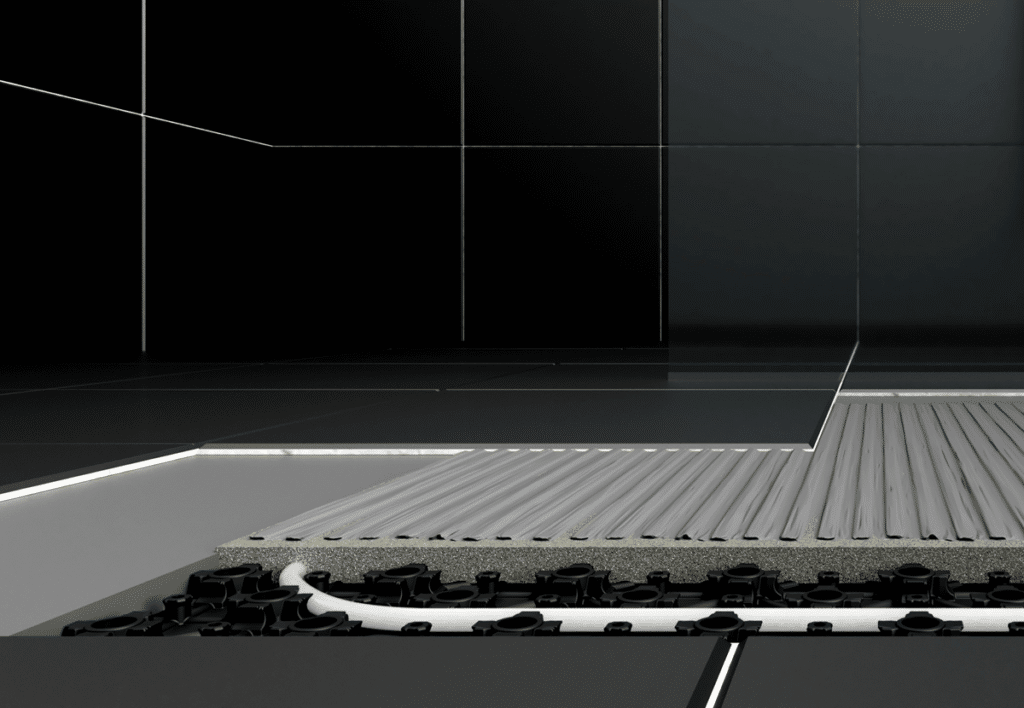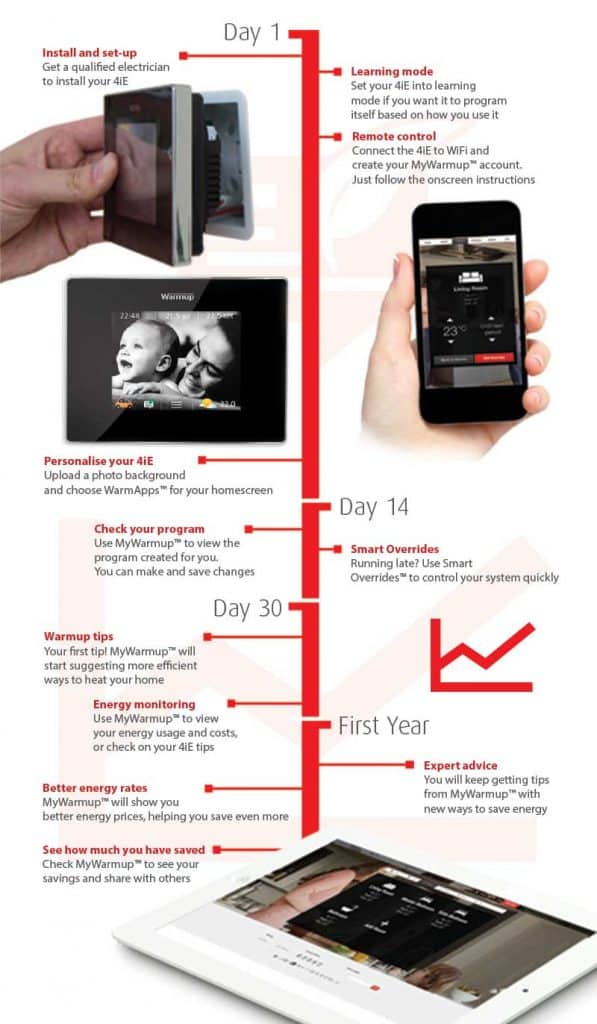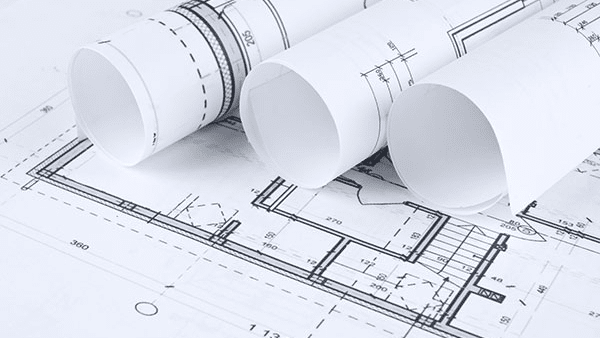From January 1st, 2026, the energy price cap in the UK will rise and therefore, the cost of heating your home will increase. We understand how difficult these kinds of price rises can be, so in this guide we’ll explore how underfloor heating can reduce both your energy bills and carbon emissions. You’ll find out:
- What price cap changes may mean for you
- The best ways to improve your home’s energy-efficiency
- Things you can do to future-proof your home against rising energy bills
- How underfloor heating could save you hundreds of pounds a year
- How floor heating can also dramatically reduce your home’s carbon footprint
Will my energy bills cost more this winter?
Yes, in most cases, they will. The energy price cap is set by Ofgem to define a maximum rate your energy supplier can charge you for your energy usage over the course of a year. Because of the instability of the energy market over the past few years, the cost of energy production is currently high, and these heightened costs will be reflected in your bills. From October 1st – December 31st, 2025, this price cap was set at £1,755 per year. The price cap from January 1st – March 31st, 2026, will be set at £1,758 per year – an increase of 0.2%. The price cap will change again on April 1st, 2026.
From January 1st, 2026, the energy price cap per unit of electricity and gas and daily standing charges will be as follows:
- For electricity: 27.69 pence per kWh, with a daily standing charge of 54.75 pence.
- For gas, these prices will be 5.93 pence per kWh, with a daily standing charge of 35.09 pence.
These costs will vary based on where you live, your meterage system and how you pay your bills. To find out more information about these prices and what they will mean for you, contact your supplier to discuss your current tariff or visit Ofgem.
How can I improve my home’s energy performance?
To help reduce the costs of rising energy bills, it’s well worth considering improving the efficiency of your home’s heating. An energy-efficient heating system will reduce energy wastage and in turn, reduce its running costs.
Installing good insulation is of paramount importance to conserve the energy it takes to warm your home. Making sure your walls, floors, and loft space are well insulated keeps the warmth produced by your heating system inside the space whilst keeping the cold air outside from coming in. Double and triple-glazed windows and draught proofing will also protect you and your family from colder external temperatures.
Looking for some more immediate steps to take that can take to reduce your costs? Using Smart multi-zone thermostats to control your heating system can save you up to an additional 25% on energy, compared to basic thermostats. Warmup’s collection of Smart Thermostats ensure that your home is heated at the right time, in the right way and at the right temperature for your needs, automatically. Using a Warmup Smart Thermostat alongside our MyHeating and AutoSwitch Smartphone apps could save you hundreds of pounds a year on your energy bills.
Read our expert guide to find more tips about improving the efficiency of your home.

What are some long-term things I can do to future-proof my home against rising prices?
If you’re interested in long-term solutions to improve the sustainability of your home and keep you protected from further energy price rises, there are a wide range of options you can explore.
You could consider installing a new heat source that makes use of renewable energy such as a ground or air-source heat pump, a biomass boiler or a solar thermal system whilst also thinking about fitting new solar-panels working alongside storage batteries for your electric needs. These energy-saving measures can be expensive to install but should lessen the impact of energy-market price disruptions whilst lowering the carbon footprint of your home too. Using a solar PV system to power your home could provide you with a 100% renewable energy solution; allowing you to enjoy zero-carbon, self-generated electricity which can dramatically reduce the cost of your electricity bills.
Updating your heating system is a great way to save energy and money. An underfloor heating system is up to 35% more efficient than traditional heating systems and Warmup offer both water systems and electric floor heaters that are suitable for use with heat pumps and solar PV systems.
How much money could I save with underfloor heating?
The enhanced efficiency of underfloor heating can result in significant savings on your energy bills. Floor heating utilises radiant heat technology to warm a room from the ground up, which uses less energy to achieve the same feeling of warmth as traditional heating methods. Our range of water UFH systems operate at lower temperatures than radiator-based systems whilst electric floor heaters facilitate 100% efficient direct heating, with no energy wastage. And our collection of Smart multi-zone thermostats can help you save even more energy and therefore money too.
To illustrate how much money you could save with underfloor heating, let’s compare the costs of heating a typical UK home – featuring 3-bedrooms, 1-bathroom, double-glazed windows and reasonable levels of insulation – with a gas boiler-based central heating system vs. one utilising a Warmup water underfloor heating solution:
| Heating Solution | Energy Source | Estimated Annual Energy Consumption | Typical Annual Cost (Based on Energy Price Cap data for January – March 2026, not including Standing Charge) |
| Traditional home with a gas boiler, radiators and a programmable thermostat | Gas | 12100 kWh | £717.53 |
| Warmup home with a gas boiler, Water Underfloor Heating and a Smart thermostat. | Gas | 7576 kWh | £449.26 |
As you can see, replacing your central heating system with Warmup floor heating in your house could save you nearly £300 a year on your heating bills.
How much money could I save with underfloor heating and a heat pump?
If you’re interested in even greater savings, then consider installing a heat pump with your new floor heating system. Ground and air-source heat pumps operate best with lower temperature waters and Warmup’s water floor heating systems also utilise lower temperatures than radiator-based systems.
Let’s look at the costs of heating the same sized home with UFH and a heat pump vs. a central heating system:
| Heating Solution | Energy Source | Estimated Annual Energy Consumption | Typical Annual Cost (Based on Energy Price Cap data for January – March 2026, not including Standing Charge) |
| Traditional home with a gas boiler, radiators and a programmable thermostat. | Gas | 12100 kWh | £717.53 |
| Warmup home with a heat pump, Water Underfloor Heating and a Smart thermostat. | Electricity | 574 kWh | £158.94 |
That’s an incredible saving of over £600 a year! Read our informative guide to find out more about the benefits of using heat pumps with underfloor heating.

Will underfloor heating reduce my home’s carbon footprint too?
The energy-efficient technology of floor heating can also dramatically reduce the carbon footprint of your home. The energy wastage created by radiator-based systems and more basic thermostats can significantly add to global carbon emissions.
Below, you can see the difference in carbon emissions for the same-sized, typical UK home if heated with underfloor heating instead of central heating:
| Heat Source: Gas Boiler | |
| Estimated kgCO2/year output of a traditional home with a gas boiler, radiators and a programmable thermostat. | Estimated kgCO2/year output of a Warmup home with a gas boiler, Water UFH and a Smart thermostat. |
| 2,107 kgCO2/year | 1,318 kgCO2/year |
| Heat Source: Heat Pump | |
| Estimated kgCO2/year output of a traditional home with a heat pump, radiators and a programmable thermostat. | Estimated kgCO2/year output of a Warmup home with a heat pump, Water UFH and a Smart thermostat. |
| 796 kgCO2/year | 207 kgCO2/year |
As you can see, if you replaced your home’s existing central system with a heat pump and Warmup floor heating, you could reduce your home’s carbon emissions by nearly 1900 kgCO2/year.
How do I buy underfloor heating?
If you want to enjoy the long-term cost savings of underfloor heating, get a free instant quote today. Our innovative online quoting tool will find the best system for your home and tell you exactly how much it will cost to purchase. Suitable for both renovations and new-build projects, Warmup’s systems can be used with almost all floor finishes and are simple to install and easy to use.




![Thumbnail [200x250]](/wp-content/uploads/Electric-Category-Page-Image.jpg)
![Thumbnail [200x250]](/wp-content/uploads/Hydronic-Category-Page-Image-1.jpg)
![Thumbnail [200x250]](/wp-content/uploads/6iE-Projects.jpg)